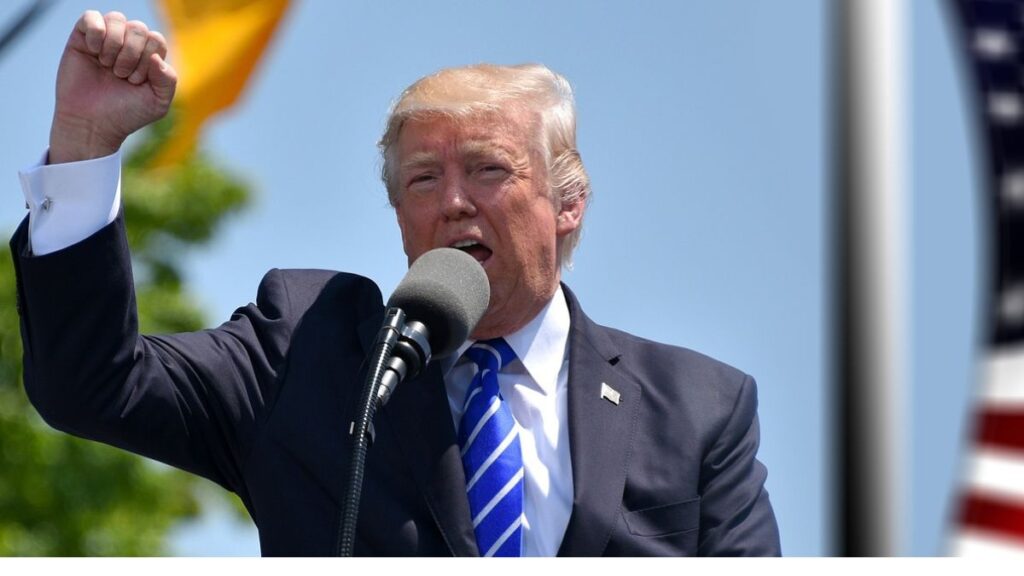President Donald Trump’s suggestion to place Gaza under American control and displace its Palestinian population has sparked a significant international backlash. This bold and controversial proposal threatens to disrupt decades of international diplomacy concerning the Israeli-Palestinian conflict and is now causing ripple effects across global politics. Here’s a closer look at the reaction from key players, the wider implications of such a proposal, and the ongoing challenges for American foreign policy.
The Immediate Reaction: Shock and Concern

When President Trump unveiled his plan to take control of Gaza, his suggestion was met with widespread condemnation from international leaders and organizations. It was seen as an unprecedented move that flew in the face of longstanding efforts to create a two-state solution—a model which aims to establish an independent Palestinian state alongside Israel.
- Middle East Response: Countries in the Middle East expressed immediate concern. Many were worried about the impact this plan would have on ongoing ceasefire negotiations between Israel and Hamas. The forced relocation of Palestinians, a key element of the proposal, was particularly troubling to regional leaders.
- European Pushback: In Europe, the plan was similarly rejected. France, Spain, and Germany were outspoken in their opposition, citing the potential violation of international law and the Geneva Convention. The forced relocation of a population is prohibited by international law, which meant that many European countries could not support Trump’s proposal without risking significant diplomatic and legal ramifications.
- Global Institutions React: The United Nations, an institution committed to international peace and human rights, also spoke out against the proposal. UN Secretary-General Antonio Guterres specifically warned against any action that could be interpreted as ethnic cleansing, further isolating Trump’s position.
The Diplomatic Dilemma for Western Allies

While Trump’s decision sparked public outrage from many countries, it created a difficult diplomatic situation for America’s allies. Criticizing the U.S. is often seen as a last resort, particularly in the early stages of a president’s term. Many leaders are caught between the need to uphold international law and their desire to maintain strong ties with the U.S., given the global political landscape.
- Europe’s Strategic Concerns: European leaders are already wary of Trump’s unpredictability in foreign policy. However, the delicate nature of transatlantic relations, especially with Germany and the UK, meant that leaders had to balance strong criticism with a more diplomatic approach. Germany’s stance, for example, emphasized that the plan would lead to more suffering, but there was still a recognition that Trump’s position could complicate efforts in Ukraine and NATO.
- Britain’s Tightrope Walk: The United Kingdom finds itself in an especially delicate position. The British government, led by Prime Minister Keir Starmer, is eager to maintain positive relations with the U.S., particularly in the context of post-Brexit trade discussions. As a result, the UK has been cautious in its criticism of Trump, treading carefully between publicly disagreeing with his Gaza proposal while avoiding a full-fledged diplomatic break.
The Bigger Picture: Risks and Consequences
Trump’s Gaza proposal is more than just a controversial statement; it underscores a broader shift in U.S. foreign policy. The move could have long-lasting implications for the U.S.’s relationships worldwide and the stability of international diplomacy.
- An End to the ‘Two-State Solution’: The idea of a two-state solution has long been the cornerstone of peace negotiations in the Israeli-Palestinian conflict. Trump’s suggestion to remove Palestinians from Gaza and place the region under American control throws this model into question. This shift could signal a broader rejection of multilateral diplomacy in favor of unilateral action.
- Potential for Isolation: Trump’s foreign policy approach risks further isolating the United States on the global stage. Over the course of his presidency, he has distanced the U.S. from international agreements and organizations, from the Paris Climate Accord to the World Health Organization (WHO). If his Gaza proposal is viewed as part of a broader trend toward self-interest and isolationism, it could alienate many of America’s allies who rely on a multilateral, rule-based global system.
Domestic Implications: A Strategy of Disruption

Trump’s foreign policy has always been defined by a penchant for disruption. His approach often involves making bold, unorthodox moves that force global actors into a reactive position. Some argue that his Gaza proposal is just another part of this strategy, aimed at shaking up the international status quo and forcing other nations to propose more practical solutions.
- The Art of the Deal: Trump’s associates have long suggested that his provocative statements, like the Gaza plan, are designed to put pressure on international leaders to present better alternatives. As former Trump officials have pointed out, his policy approach aims to break deadlocks and challenge existing diplomatic frameworks.
- The Risk of Unintended Consequences: However, there are significant risks in this strategy. While shaking up the global order might have short-term benefits, it could create unintended consequences, such as worsening tensions with allies, or triggering more severe geopolitical instability. The focus on unilateral actions could increase global insecurity and undermine America’s ability to lead on global issues.
America’s Global Role Under Trump
The implications of Trump’s Gaza proposal may continue to unfold, but they mark a decisive moment in U.S. foreign policy. America’s leadership in international diplomacy is under scrutiny, and the fallout from this plan may only be the beginning.
- A Shift Toward Isolationism?: If Trump’s foreign policy moves continue to isolate the U.S., we may see a reconfiguration of global alliances. Countries like Russia and China, which have increasingly sought to challenge U.S. dominance, could benefit from the power vacuum left by the U.S.’s unpredictable policies.
- A New Era of Diplomatic Strategy: Despite the risks, Trump’s approach may signal the beginning of a new era in diplomatic strategy, one that is less concerned with multilateral cooperation and more focused on unilateral action. For Europe and other global actors, the key question will be how to navigate these changes and preserve international stability in a time of heightened uncertainty.
Read More: The Mystery of Trump’s Demands: What Does He Really Want from Canada and Mexico?







